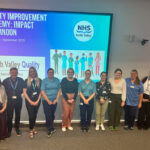Difficulties at work or life changing events at home such as bereavement and breakups can leave you struggling to cope and could affect your health, wellbeing, your relationships and your work.
The good news is that two staff support services delivered through Occupational Health – staff counselling and staff psychology, are there to help and support you. If you’re interested in learning more and discovering the difference between the two then please read on.
Staff Counselling Service
We can all find ourselves struggling in times of stress and major upset in our lives. At times like these your usual coping strategies may no longer work and you may find it more difficult to cope and understand your feelings.
People attend counselling for many different reasons including depression, relationship issues & divorce, stress at work, bereavement, abuse, gender & sexuality issues and family difficulties. Sometimes these issues have been around a long time or they could be the result of something sudden which has happened in your life.
Counselling is a confidential, therapeutic service which offers space to discuss with a counsellor what is worrying you and to work with them to find ways to help you cope. Counselling can be emotional work and it doesn’t provide an instant fix for problems or concerns as it requires an openness to explore difficulties and motivation to attend and commit to sessions. It is important to consider the following before referral to counselling:
- Why are you considering counselling at this time?
- What would be helpful to you during the counselling process?
- Are you motivated to discuss and explore what is worrying you?
- Are you open to self exploration?
- Do you have support during the counselling process?
How do I access the counselling service?
Staff Counselling is based within the Occupational Health Department and held on Mondays and Tuesdays 8.15am to 4.45pm and on Wednesdays 8.30 am to 1.15pm.
You can refer yourself online via the Occupational Health portal on the staff intranet or by completing a form available from Occupational Heath reception.
Once a referral has been received a letter will be sent with an initial assessment appointment. At this appointment the counsellor will explore the reason you have sought counselling and what you would like to gain from attending sessions. At the end of this assessment you and the counsellor will discuss a way forward which could mean attending more sessions or you could be signposted to a different service. Sessions last 50 minutes and up to six can be arranged during working hours, with the agreement of your line manager.
Meet our Staff Counsellor (above)
Ciara Torbet originally trained as a mental health nurse in Newcastle which she feels gives her a good understanding of mental health issues in her counselling work. She then went on to obtained an MA in Counselling at Durham University and has worked as a counsellor for 22 years in schools, hospitals, voluntary organisations and counselling agencies.
“My work as a counsellor has given me a positive view of people and their capacity to cope and change.”
 Staff Psychology Service
Staff Psychology Service
Staff come to psychological therapy for a variety of reasons but to be seen within the service there must be an impact of difficulties at or on work. For example, there could be a pattern of recurrent or long term sickness absence or an impact on functioning whilst at work.
Psychological therapy can help with symptoms such as anxiety, depression or trauma, lead to a better understanding of the factors which influence how we feel and help people develop effective coping strategies to manage these conditions. Therapy can help improve skills such as self-care or assertiveness. It can also help people to develop a more compassionate approach to how they view themselves or consider how their career choices and job roles impact on them emotionally.
How do I access the psychology service?
You can only be referred to the service by a member of the Occupational Health Department (there is no option to self-refer as the service has limited capacity). They will review all potential referrals to ensure they are appropriate and individuals will then be offered an assessment appointment with the staff psychologist.
As there is a wait for therapy the assessment provides an opportunity to discuss and reflect on the difficulties being faced. It also provides a space to consider whether therapy would be suitable and whether the staff member can commit to being fully engaged in the process and is willing to work on issues and situations they wish to change.
Therapy involves regular appointments, usually fortnightly, for a specific period of time. Information remains confidential within the service and there is no correspondence with managers, other health professionals or agencies unless someone gives written consent for this.
Meet our Staff Psychologist
Dr Susan Ramsay is a Consultant Clinical Psychologist who has worked in NHS Forth Valley since qualifying in 1995.
She has worked with adults in primary and secondary care within the Psychological Therapies Service in Forth Valley and with local staff since she joined the Occupational Health Department in 2008. She is also the Psychological Therapies Training Co-ordinator for NHS Forth Valley, a NES-funded post.
‘I am passionate about helping people stay well at work, and the psychological benefits to people of being at work.’
Additional support programmes
Two support programmes are being offered to staff to try to target the impact of exposure to trauma at work. Staying Well is a 2.5 hour workshop which covers typical signs of anxiety and trauma, and focuses on how to spot these both in yourself and in colleagues. It advocates positive ways to manage these.
Supporting Your Colleagues is a one day workshop designed to encourage peer support. It covers reactions to trauma, anxiety and depression as well as how to recognise and start conversations with colleagues who may be struggling. It aims to help staff think about how they can offer social support to their peers. Again this is ideally offered to teams or services more likely to be exposed to trauma.
To find out more contact Occupational Health on 01324 566663 or email fv-uhb.ohsadmin@nhs.net







